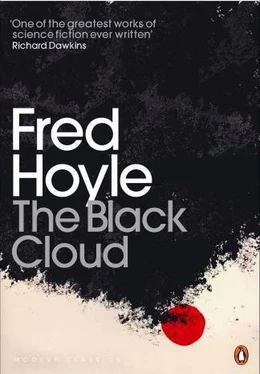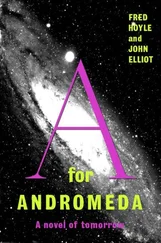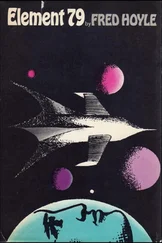Fred Hoyle - The Black Cloud
Здесь есть возможность читать онлайн «Fred Hoyle - The Black Cloud» весь текст электронной книги совершенно бесплатно (целиком полную версию без сокращений). В некоторых случаях можно слушать аудио, скачать через торрент в формате fb2 и присутствует краткое содержание. Жанр: Фантастика и фэнтези, на английском языке. Описание произведения, (предисловие) а так же отзывы посетителей доступны на портале библиотеки ЛибКат.
- Название:The Black Cloud
- Автор:
- Жанр:
- Год:неизвестен
- ISBN:нет данных
- Рейтинг книги:5 / 5. Голосов: 1
-
Избранное:Добавить в избранное
- Отзывы:
-
Ваша оценка:
- 100
- 1
- 2
- 3
- 4
- 5
The Black Cloud: краткое содержание, описание и аннотация
Предлагаем к чтению аннотацию, описание, краткое содержание или предисловие (зависит от того, что написал сам автор книги «The Black Cloud»). Если вы не нашли необходимую информацию о книге — напишите в комментариях, мы постараемся отыскать её.
The Black Cloud — читать онлайн бесплатно полную книгу (весь текст) целиком
Ниже представлен текст книги, разбитый по страницам. Система сохранения места последней прочитанной страницы, позволяет с удобством читать онлайн бесплатно книгу «The Black Cloud», без необходимости каждый раз заново искать на чём Вы остановились. Поставьте закладку, и сможете в любой момент перейти на страницу, на которой закончили чтение.
Интервал:
Закладка:
Fred Hoyle
The Black Cloud
With an Afterword by Richard Dawkins

PENGUIN BOOKS
PENGUIN CLASSICS
Published by the Penguin Group
First published by Heinemann 1957
Preface
I hope that my scientific colleagues will enjoy this frolic. After all, there is very little here that could not conceivably happen.
Since institutional posts that actually exist are mentioned in the story, I have been at particular pains to ensure that the associated characters have no reference to actual holders of these posts.
It is commonplace to identify opinions forcibly expressed by a character with the author’s own. At the risk of triviality, I would add that this association may be unwarranted.
F. H.Prologue
The episode of the Black Cloud has always had a great fascination for me. The thesis that won me my Fellowship at Queens’ College, Cambridge, was concerned with some aspects of this epic event. This work was later published, after suitable modifications, as a chapter in Sir Henry Clayton’s History of the Black Cloud , much to my gratification.
It was not altogether surprising therefore that Sir John McNeil, our late Senior Fellow and well-known physician, should have willed to me on his death a voluminous collection of papers dealing with his own personal experiences of the Cloud. More surprising, however, was the letter that accompanied the papers. It read:
Queens’ College,
19 August 2020
My dear Blythe,
I trust you will forgive an old man for chuckling occasionally to himself over some of your speculations concerning the Black Cloud. As it happened, I was so placed during the crisis that I learned of the real nature of the Cloud. This information for various cogent reasons has never been made public and seems unknown to the writers of official histories ( sic! ). It has caused me much anxiety of mind to decide whether my knowledge should pass away with me or not. In the event I have decided to hand on my difficulties and uncertainties to you. These will I believe become clearer to you when you have read my MS., which, incidentally, I have written in the third person so that I myself do not obtrude too much on the story!
In addition to the MS., I am leaving you an envelope containing a roll of punched paper tape. I beg you to guard this tape with the greatest care until you come to understand its significance.
Sincerely,
John McNeilOpening Scenes
It was eight o’clock along the Greenwich meridian. In England the wintry sun of 7 January 1964 was just rising. Throughout the length and breadth of the land people were shivering in ill-heated houses as they read the morning papers, ate their breakfasts, and grumbled about the weather, which, truth to tell, had been appalling of late.
The Greenwich meridian southward passes through western France over the snow-covered Pyrenees, and through the eastern corner of Spain. The line then sweeps to the west of the Balearic Islands, where wise people from the north were spending winter holidays — on a beach in Minorca a laughing party might have been seen returning from an early morning bathe. And so to North Africa and the Sahara.
The primary meridian then swings towards the equator through French Sudan, Ashanti, and the Gold Coast, where new aluminium plants were going up along the Volta River. Thence into a vast stretch of ocean, unbroken until Antarctica is reached. Expeditions from a dozen nations were rubbing elbows with each other there.
All the land to the east of this line, as far as New Zealand, was turned towards the Sun. In Australia, evening was approaching. Long shadows were cast across the cricket ground at Sydney. The last overs of the day were being bowled in a match between New South Wales and Queensland. In Java, fishermen were busying themselves in preparation for the coming night’s work.
Over much of the huge expanse of the Pacific, over America, and over the Atlantic it was night. It was three a.m. in New York. The city was blazing with light, and there was still a good deal of traffic in spite of recent snow and a cold wind from the northwest. And nowhere on the Earth at that moment was there more activity than in Los Angeles. The evening was well along there, midnight: the boulevards were crowded, cars raced along the freeways, restaurants were still pretty full.
A hundred and twenty miles to the south the astronomers on Palomar Mountain had already begun their night’s work. But although the night was clear and stars were sparkling from horizon to zenith, conditions from the point of view of the professional astronomer were poor, the ‘seeing’ was bad — there was too much wind at high levels. So nobody was sorry to down tools for the midnight snack. Earlier in the evening, when the outlook for the night already looked pretty dubious, they had agreed to meet in the dome of the 48-inch Schmidt.
Paul Rogers walked the four hundred yards or so from the 200-inch telescope to the Schmidt, only to find Bert Emerson was already at work on a bowl of soup. Andy and Jim, the night assistants, were busy at the cooking stove.
“Sorry I got started,” said Emerson, “but it looks as though tonight’s going to be a complete write-off.”
Emerson was working on a special survey of the sky, and only good observing conditions were suitable for his work.
“Bert, you’re a lucky fellow. It looks as though you’re going to get another early night.”
“I’ll keep on for another hour or so. Then if there’s no improvement I’ll turn in.”
“Soup, bread and jam, sardines, and coffee,” said Andy. “What’ll you have?”
“A bowl of soup and cup of coffee, thanks,” said Rogers.
“What’re you going to do on the 200-inch? Use the jiggle camera?”
“Yes, I can get along tonight pretty well. There’s several transfers that I want to get done.”
They were interrupted by Knut Jensen, who had walked the somewhat greater distance from the 18-inch Schmidt.
He was greeted by Emerson.
“Hello, Knut, there’s soup, bread and jam, sardines, and Andy’s coffee.”
“I think I’ll start with soup and sardines, please.”
The young Norwegian, who was a bit of a leg-puller, took a bowl of cream of tomato, and proceeded to empty half a dozen sardines into it. The others looked on in astonishment.
“Judas, the boy must be hungry,” said Jim.
Knut looked up, apparently in some surprise.
“You don’t eat sardines like this? Ah, then you don’t know the real way to eat sardines. Try it, you’ll like it.”
Then having created something of an effect, he added:
“I thought I smelled a skunk around just before I came in.”
“Should go well with that concoction you’re eating, Knut,” said Rogers.
When the laugh had died away, Jim asked:
“Did you hear about the skunk we had a fortnight ago? He de-gassed himself near the 200-inch air intake. Before anybody could stop the pump the place was full of the stuff. It sure was some hundred per cent stink. There must have been the best part of two hundred visitors inside the dome at the time.”
“Lucky we don’t charge for admission,” chuckled Emerson, “otherwise the Observatory’d be sunk in for compensation.”
“But unlucky for the clothes cleaners,” added Rogers.
On the way back to the 18-inch Schmidt, Jensen stood listening to the wind in the trees on the north side of the mountain. Similarities to his native hills set off an irrepressible wave of homesickness, longing to be with his family again, longing to be with Greta. At twenty-four, he was in the United States on a two-year studentship. He walked on, trying to kick himself out of what he felt to be a ridiculous mood. Rationally he had no cause whatsoever to be dispirited. Everyone treated him with great kindness, and he had a job ideally suited to a beginner.
Читать дальшеИнтервал:
Закладка:
Похожие книги на «The Black Cloud»
Представляем Вашему вниманию похожие книги на «The Black Cloud» списком для выбора. Мы отобрали схожую по названию и смыслу литературу в надежде предоставить читателям больше вариантов отыскать новые, интересные, ещё непрочитанные произведения.
Обсуждение, отзывы о книге «The Black Cloud» и просто собственные мнения читателей. Оставьте ваши комментарии, напишите, что Вы думаете о произведении, его смысле или главных героях. Укажите что конкретно понравилось, а что нет, и почему Вы так считаете.












